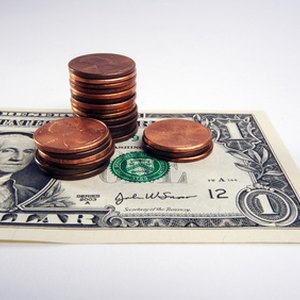
When you file a bankruptcy case, your money and assets are put into a bankruptcy estate until the case is discharged. Trustees control this estate and monitor the money and assets of the estate while you have an active bankruptcy case. Depending on which chapter of personal bankruptcy you file under, you may not be able to make any large purchases while your case is pending.
Chapter 7 Bankruptcy Spending
Chapter 7 assets are determined by the date on which you file for bankruptcy. However, if you receive a "windfall" of money after filing your case (such as winning the lottery), that money may become property of your bankruptcy estate and you may not spend that money freely until your creditors have been paid. You can continue regular spending for everyday expenses such as utility bills, groceries, vehicle payments and mortgage payments. You may not use credit cards while in a chapter 7 bankruptcy case.
Chapter 13 Bankruptcy Spending
Chapter 13 cases allows you more flexibility with spending. In a Chapter 13 bankruptcy, you are given a monthly budget that allows you to spend a set amount of money every month. However, you are not allowed to spend more than $1,000 at a time without court permission or obtain credit without court permission, such as purchasing a new car while your bankruptcy case is pending. In order to make large purchases, you must file a motion with the court to have your purchase approved by the judge.
Emergency Spending
When an emergency situation arises where you must spend money before receiving court permission, such as emergency medical expenses, you may make emergency purchases and receive court permission after the fact. The emergency expenses must have been necessary at the time they were made and you will need to provide documentation regarding what the emergency was and how much was actually spent.
Consequences
If you do make purchases without court permission in either a Chapter 7 or Chapter 13 case, you risk having your case dismissed. A dismissed case means the case is thrown out of court and the bankruptcy case has failed. This is because legally, any extra money obtained during a bankruptcy case is legally required to be paid to creditors, not used in discretionary spending. You will never get in trouble for spending money on everyday living expenses.
References
- United States Bankruptcy Courts: Bankruptcy Basics
- United States Bankruptcy Courts: Chapter 7 Bankruptcy
- United States Bankruptcy Courts: Chapter 13 Bankruptcy
- United States Bankruptcy Courts: Bankruptcy Discharge
- United States Courts. “Chapter 13 - Bankruptcy Basics.” Accessed Aug. 18, 2020.
- United States Courts. “Discharge in Bankruptcy - Bankruptcy Basics.” Accessed Aug. 18, 2020.
- United States Courts. “Chapter 7 - Bankruptcy Basics.” Accessed Aug. 18, 2020.
- United States Courts. “Instructions, Bankruptcy Forms for Individuals,” Pages 33-34. Accessed Aug. 18, 2020.
- United States House of Representatives. “11 USC 1325: Confirmation of Plan.” Accessed Aug. 18, 2020.
- United States House of Representatives. “11 USC 330: Compensation of Officers.” Accessed Aug. 18, 2020.
- American Bankruptcy Institute. "Success Rates in Chapter 13." Page 1. Accessed Aug. 19, 2020.
- United States House of Representatives. “11 USC 1322: Contents of Plan.” Accessed Aug. 18, 2020.
- Nolo.com "Steps in a Typical Chapter 13 Bankruptcy Case." Accessed Aug. 19, 2020.
- U.S. Bankruptcy Court Eastern District of Michigan. "How to File a Motion for Relief From the Automatic Stay." Accessed Aug. 19, 2020.
Writer Bio
Jackie Lynn is an attorney by trade with a Juris Doctor and bachelor's degrees in law and business respectively. She specializes in bankruptcy and immigration law and is also is an avid fitness enthusiast and animal lover. She has been writing on her own hobby website since 2007.

